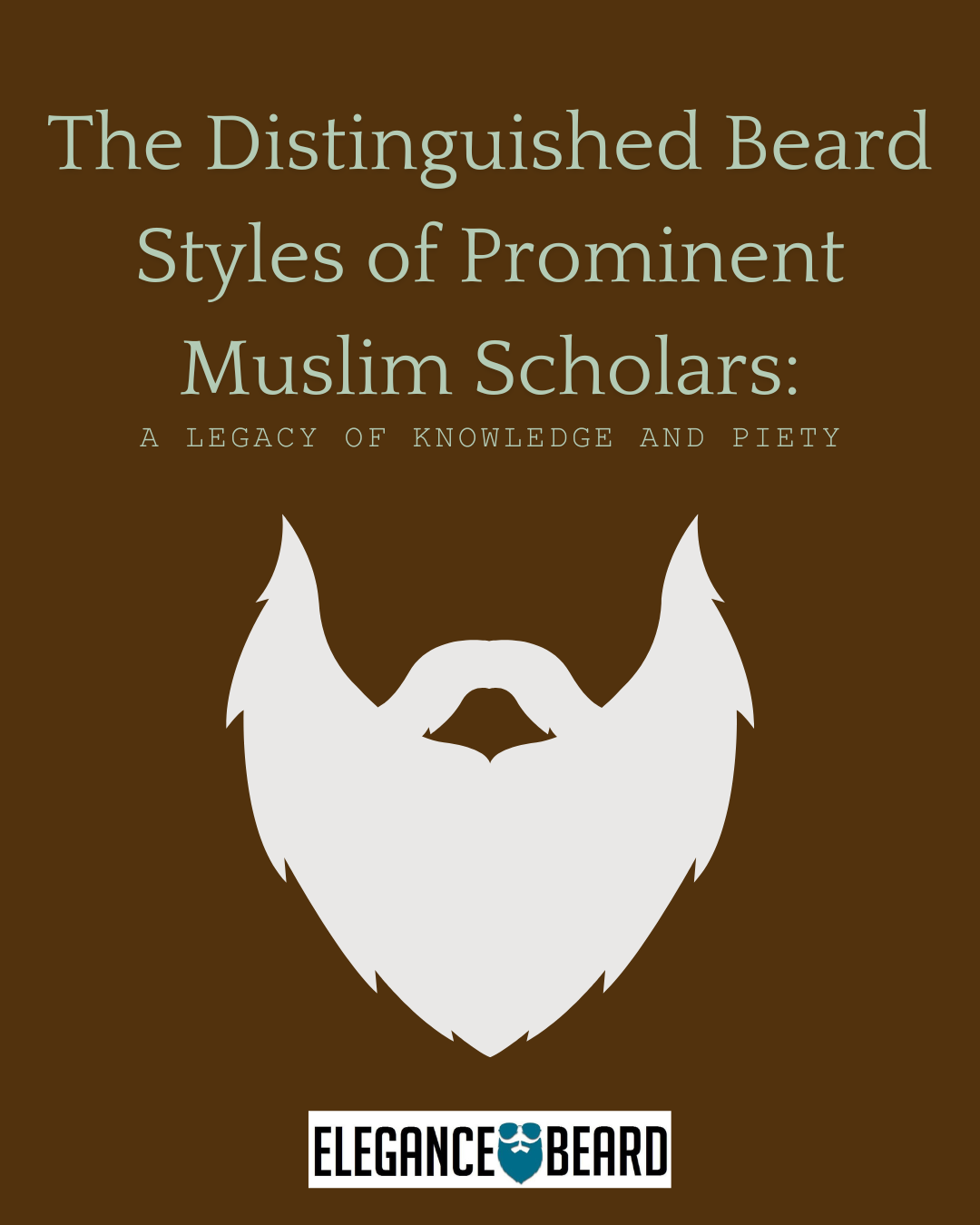
The Distinguished Beard Styles of Prominent Muslim Scholars: A Legacy of Knowledge and Piety
Share

Note: this article has been written with the help of Chat GPT
Beards have long been a symbol of wisdom, spirituality, and scholarly dedication in Islamic culture. The beard, an essential aspect of the Sunnah (practices of the Prophet Muhammad), has been embraced by many Muslim scholars throughout history. These scholars' distinctive beard styles not only reflected their religious devotion but also left a lasting impression on the cultural and intellectual fabric of the Muslim world. Here’s a look at the iconic beard styles of some of the most influential Muslim scholars.
- Imam Al-Bukhari – The Collector’s Beard
Imam Al-Bukhari, renowned for compiling one of the most authentic collections of Hadith, sported a modest, medium-length beard. His beard style, simple yet dignified, reflected his dedication to authenticity and meticulous scholarship. It symbolized his role as a collector and preserver of Islamic knowledge.
- Imam Malik – The Traditionalist’s Beard
Imam Malik, the founder of the Maliki school of Islamic jurisprudence, was known for his thick and full beard. This beard style represented his unwavering adherence to tradition and his authoritative presence in the Islamic legal world. His full beard was a testament to his comprehensive understanding and application of the Sharia (Islamic law).
- Al-Tabari – The Historian’s Beard
Al-Tabari, an influential Persian scholar known for his historical and Quranic exegesis works, had a well-kept, moderately long beard. His beard style reflected his scholarly rigor and his role as a historian and interpreter of the Quran. It was a symbol of his dedication to documenting and explaining Islamic history and theology.
- Ibn Rushd (Averroes) – The Rationalist’s Beard
Ibn Rushd, also known as Averroes in the West, was a prominent philosopher and physician whose works bridged Islamic and Western thought. He is often depicted with a neatly trimmed beard, highlighting his rational and analytical approach to philosophy. This beard style symbolized his methodical thinking and his influence on both Islamic and Western intellectual traditions.
- Imam Al-Nawawi – The Devout’s Beard
Imam Al-Nawawi, famous for his work in Hadith and Islamic jurisprudence, had a short, neatly maintained beard. His beard style was modest and practical, reflecting his ascetic lifestyle and deep piety. It represented his focus on personal discipline and his significant contributions to Islamic scholarship, particularly in Hadith studies.
- Ibn Khaldun – The Historian’s Beard
Ibn Khaldun, a pioneering historian and sociologist, sported a distinctive beard that was both long and well-groomed. His beard style signified his scholarly depth and his pioneering work in historiography and sociology. It was a mark of his intellectual rigor and his commitment to preserving and analyzing historical knowledge.
The Cultural and Religious Importance of Beards
In Islamic tradition, the beard is a significant symbol of manhood, respect, and adherence to the Sunnah. The Quran and Hadiths highlight the importance of maintaining a beard, which signifies a Muslim man's devotion to following the Prophet’s example. For many scholars, their beard styles were not just personal choices but expressions of their commitment to Islamic teachings and their scholarly identities.
Conclusion
The beard styles of prominent Muslim scholars are as diverse as their contributions to Islamic knowledge and culture. From the thick and traditional beard of Imam Malik to the neatly trimmed and rationalist beard of Ibn Rushd, each style carries its own meaning and significance. These scholars not only shaped the course of Islamic history with their intellectual pursuits but also set enduring examples of personal grooming and religious devotion.
Today, the beard remains a powerful symbol in the Muslim world, representing a connection to a rich heritage of wisdom, piety, and scholarly excellence. Whether as a mark of religious observance, personal identity, or intellectual homage, the beard continues to inspire and connect Muslims to their storied past and vibrant present.
